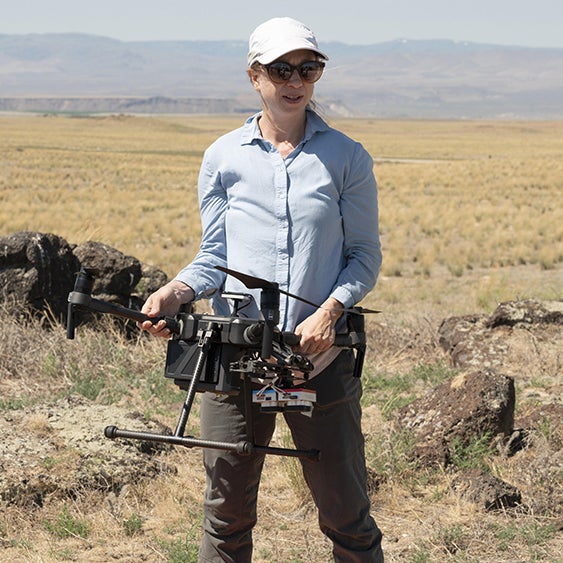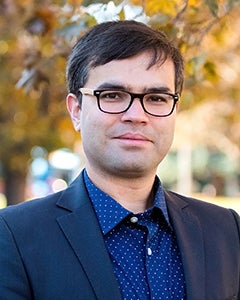According to the Congressional Research Service, as of Sept. 2, nearly 48,500 wildfires have impacted over 6 million acres of land in the U.S. in 2022. Wildfires are an increasingly frequent danger and socio-environmental challenge for the U.S. and the world.

“Fire is a complex, wicked problem that has far-reaching ecological and societal impacts,” Human-Environment Systems Assistant Professor Megan Cattau said. “Without a diversity of perspectives, it would be impossible to even understand the problem, let alone identify gaps in knowledge or effective solutions. Interdisciplinarity provides the depth and breadth necessary to evaluate wildfire.”
Fortunately, Boise State wildfire researchers Cattau, civil engineering Assistant Professor Mojtaba Sadegh, and Human-Environment Systems and Ecology, Evolution, and Behavior doctoral students Tao Huang and Meg Dolman joined with more than 80 wildfire experts from across the world to develop a plan of attack for researching and responding to the wildfire crisis.

The group collaborated through a five-day ‘Wildfire and the Biosphere’ innovation lab, sponsored by the U.S. National Science Foundation and facilitated by a group called Know Innovation.
“It was an extraordinary experience to brainstorm with so many scientists across the country and world, learn from them and share my research findings with them,” Sadegh said. “Neither the drivers of wildfires, nor our response, nor far-reaching impacts of wildfires can be studied in a silo.”
Their findings and recommended path forward can be accessed in the National Academy of Sciences Nexus journal. The study was led by scientist Jacquelyn Shuman of the National Center for Atmospheric Research.
Third year doctoral student Dolman said that collaborating on this work and learning directly from global fire experts was a privilege that she won’t soon forget.
“From my position as an early career fire scientist, it was incredible to have conversations at a broad scale with fire experts and contribute to the conversation about the future of fire, which will affect my generation and those generations after me,” Dolman said.
To learn more, read the National Center for Atmospheric Research press release.